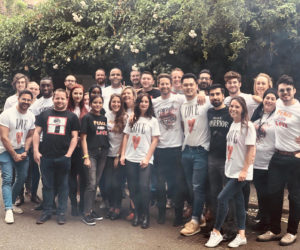How much time, energy and expense is it taking your company to find the best people for your tech teams? I hear repeatedly from CTOs that filtering and interviewing large numbers of people for high volume tech roles is draining too much time, while getting any suitable applicants for roles requiring emerging skill sets is difficult – e.g. Data Scientists, Cyber Security Analysts or Polyglot Engineers.
The Unique Challenge of Emerging Skill Roles
In recent years, advancements in technology have, to some extent democratised the recruitment process. Thanks to the ease of LinkedIn, for example, and use of X-Ray / Boolean search methods, many companies now make use of their own in-house Talent Acquisition (TA) teams to fill roles. Working on multiple roles simultaneously is a labour-intensive process at the best of times, and when it comes to roles requiring people with emerging skill sets, it’s much tougher.
If a role requires an emerging skill set, there are naturally fewer potential people out there. As a result, these people will be more selective about where they want to work and are highly likely not to be actively looking for jobs. Having a strong network in this area and headhunting is more effective than advertising and managing an in-flow of candidates would be.
The Rise of the Polyglot Engineer
The shift in requirements for software engineers is a great example of how quickly skills change from emerging to mainstream and – in some cases – back again.
About 10 years ago, software engineer roles tended to be more generalist, working with multiple development languages. This evolved into companies looking for software engineers with one language specialism – Java / Python developers etc. This is now going full cycle and the future of software engineering is ‘polyglot’ engineers, which means individuals with experience with several platforms and programming languages. The next generation, currently training at University, are being taught to develop in multiple languages and not being told to specialise. Having polyglots allows companies to build teams that are leaner, more efficient, and better able to evolve as new technologies emerge.
A Collaborative Approach Between In-House Teams and Agency
The challenge of finding people for mainstream roles vs emerging skill sets often leads companies towards one of three approaches, each with pros and cons.
- Solution one: all roles are the responsibility of in-house talent acquisition teams.
This is extremely time consuming and, naturally, creates a tendency towards filling the mainstream roles first as they are quicker to complete.
- Solution two: have a large roster of specialist recruitment agencies for emerging skill set roles.
This approach brings the benefit of the agencies’ expertise in niche areas but also means multiple terms, contact points and repeating requirements.
- Solution three: hire external consultancies to do the specialist work required.
Management consultancies actively hire polyglot engineers, for example, knowing there will be a demand in the market. While this ensures the expertise, it comes at a high cost.
At Arrows Group, we have evolved our proposition with just this conundrum in mind to offer an alternative solution. Our approach is to work collaboratively with company TA teams. Historically, TA teams have been viewed as rivals to the traditional role of the recruiter, but we consider this to be an outdated and unhelpful way of thinking.
Through a two-pronged approach, we aim to add tangible value for TA teams. When it comes to mainstream, volume roles we help support and streamline the process, quite literally sitting next to teams on-site. We help manage the interview process, deal with stakeholders and help increase the ratio of job offer to acceptance.
Alongside this, our tech recruitment consultants have moved their skill sets towards niche roles. Our specialists within Arrows Group invest time in building networks, in particular working with universities and targeting Generation Z as they come into the workforce.
Adapting Approach and Expectations
Through a blended, collaborative approach to recruitment we have helped encourage our clients to hire people where their potential to learn multiple skills is key rather than out and out specialism, creating improvements in acceptance ratios and retention.
The most important element in approaching this challenge is looking at the interview process and making sure a different approach is used for the different type of skills – one that will resonate with the individuals. We’ve adapted our technical tests to be a lot more collaborative and engaging where needed, for example by using team-based testing with a social element incorporated into the interview for polyglot engineers. We use video interviewing and other mediums that are preferred by our target candidates.
We recognise key skill sets are constantly changing, particularly in the tech sector. It’s critical, then, that we don’t insist on using traditional methodologies to attract individuals with cutting edge abilities.
Are you looking to hire individuals with emerging skills, such as polyglot engineers? Or, would you like to streamline your process with volume roles? Why not challenge us and see if we can help? Contact Charlie.sell@arrowsgroup.co.uk, call 0207 803 1700 or visit www.arrowsgroup.com.

